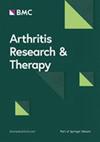系统性红斑狼疮患者接受治疗的不连续性与患者对风湿病医生的信任之间的关系:一项横断面研究
IF 4.9
2区 医学
Q1 Medicine
引用次数: 0
摘要
患者的信任在医患关系中起着核心作用。这项研究的目的是要确定,风湿病医生的门诊就诊次数是否与患者对其惯常就诊的风湿病医生的信任度有关。研究对象包括患有系统性红斑狼疮(SLE)的日本成年人,他们均符合美国风湿病学会 1997 年修订的分类标准,并在过去一年中接受过风湿病专科医生的门诊治疗。我们使用 11 个项目的日文版 "医生信任度量表"(范围 0-100)来评估患者对医生的信任度。我们使用了一个带有聚类方差估计的一般线性模型来评估风湿免疫科覆盖医生的门诊次数与患者对其惯常就诊的风湿免疫科医生的信任度之间的关系。在 515 名登记的参与者中,有 421 名系统性红斑狼疮患者纳入了我们的分析。根据过去一年中风湿免疫科医生的门诊次数将患者分为以下几组:未就诊组(59.9%;参照组)、一至三次就诊组(24.2%;低频率组)和四次或四次以上就诊组(15.9%;高频率组)。对医生信任度量表得分的中位数为 81.8(四分位间范围:72.7-93.2)。低频率组(平均差异:-3.03;95% 置信区间 [CI]:-5.93 至 -0.80)和高频率组(平均差异:-4.17;95% 置信区间 [CI]:-7.77 至 -0.58)对其惯常就诊的风湿免疫科医生的信任度均较低。这项研究表明,风湿病专科医生的门诊次数与患者对其惯常就诊的风湿病专科医生的信任度较低有关。本文章由计算机程序翻译,如有差异,请以英文原文为准。
Association between discontinuity of care and patient trust in the usual rheumatologist among patients with systemic lupus erythematosus: a cross-sectional study
Patient trust plays a central role in the patient-physician relationship. This study aimed to determine whether the number of outpatient visits with a covering rheumatologist is associated with patient trust in their usual rheumatologist. Japanese adults with systemic lupus erythematosus (SLE) who met the 1997 revised classification criteria of the American College of Rheumatology and had outpatient visits with a covering rheumatologist in the past year were included. We used the 11-item Japanese version of the modified Trust in Physician Scale (range 0–100) to assess patient trust. A general linear model with cluster-robust variance estimation was used to evaluate the association between the number of outpatient visits with covering rheumatologists and the patient’s trust in their usual rheumatologist. Of the 515 enrolled participants, 421 patients with SLE were included in our analyses. Patients were divided into groups according to the number of outpatient visits with a covering rheumatologist in the past year as follows: no visits (59.9%; reference group), one to three visits (24.2%; low-frequency group), and four or more visits (15.9%; high-frequency group). The median Trust in Physician Scale score was 81.8 (interquartile range: 72.7–93.2). Both the low-frequency group (mean difference: -3.03; 95% confidence interval [CI] -5.93 to -0.80) and high-frequency group (mean difference: -4.17; 95% CI -7.77 to -0.58) exhibited lower trust in their usual rheumatologist. This study revealed that the number of outpatient visits with a covering rheumatologist was associated with lower trust in a patient’s usual rheumatologist.
求助全文
通过发布文献求助,成功后即可免费获取论文全文。
去求助
来源期刊

Arthritis Research & Therapy
RHEUMATOLOGY-
CiteScore
8.60
自引率
2.00%
发文量
261
审稿时长
14 weeks
期刊介绍:
Established in 1999, Arthritis Research and Therapy is an international, open access, peer-reviewed journal, publishing original articles in the area of musculoskeletal research and therapy as well as, reviews, commentaries and reports. A major focus of the journal is on the immunologic processes leading to inflammation, damage and repair as they relate to autoimmune rheumatic and musculoskeletal conditions, and which inform the translation of this knowledge into advances in clinical care. Original basic, translational and clinical research is considered for publication along with results of early and late phase therapeutic trials, especially as they pertain to the underpinning science that informs clinical observations in interventional studies.
 求助内容:
求助内容: 应助结果提醒方式:
应助结果提醒方式:


